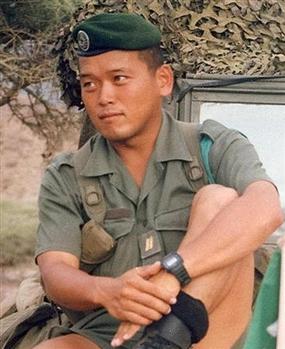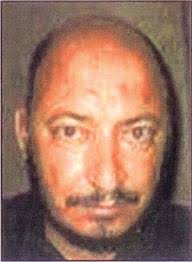Hostage Working Group was organized by the U.S. Department of State at the US Embassy in Baghdad in the summer of 2004 to monitor hostages in Iraq. Reported as meeting "weekly to bring together officials from the FBI, the Defense Department, the State Department and the Iraqi government. Officials do not publicly discuss the actions they can take against kidnappers."1
In an interview in the magazine, Talk Through, of the UK's Ministry of Defence Police, April/May 2005, PC Peter Anderson, who was working with the Hostage Working Group (HWG) describes himself as: "the only non-American in this 30-strong group."
Erik Rye was identified as the director of the Hostage Working Group at the US Embassy in Baghdad in an editorial 3 in the International Herald Tribune on May 17, 2006.
A statement issued September 7, 2006 by the White House 4 identified another group working out of the US Embassy in Baghdad, the Office of Hostage Affairs. It is unknown if this is a new group or an alternative name for the Hostage Working Group.

Australia joined a U.S.-led coalition in the Iraq War. Declassified documents reveal that the decision to go to war was taken primarily with a view to enhancing its alliance with the United States.

The Occupation of Iraq (2003–2011) was characterized by a large United States military deployment on Iraqi territory, beginning with the US-led invasion of the country in March 2003 which overthrew the Ba'ath Party government of Saddam Hussein and ending with the departure of US troops from the country in 2011. Troops for the occupation came primarily from the United States, the United Kingdom, and Australia, but 29 other nations also provided troops, and there were varying levels of assistance from Japan and other countries, as well as tens of thousands of private military company personnel.

Jama'at al-Tawhid wal-Jihad, abbreviated as JTJ or Jama'at, was a Salafi jihadist militant group. It was founded in Jordan in 1999, and was led by Jordanian national Abu Musab al-Zarqawi for the entirety of its existence. During the Iraqi insurgency (2003–11), the group became a decentralized network with foreign fighters with a considerable Iraqi membership.
Margaret Hassan was an Irish aid worker who had worked in Iraq for many years until she was abducted by unidentified assailants in Baghdad during the Iraqi insurgency. Her captors subsequently filmed and released a video of her stating that she was living her "last hours" before she pleaded for the withdrawal of British troops from Iraq; she has not been seen since, and her remains were never recovered.
Events in the year 2005 in Iraq.

Akihiko Saito was a Japanese security specialist adviser who was taken hostage by the Jaish Ansar al-Sunna in Iraq in 2005.
Members of the Iraqi insurgency began taking foreign hostages in Iraq beginning in April 2004. Since then, in a dramatic instance of Islamist kidnapping they have taken captive more than 200 foreigners and thousands of Iraqis; among them, dozens of hostages were killed and others rescued or freed. In 2004, executions of captives were often filmed, and many were beheaded. However, the number of the recorded killings decreased significantly. Many hostages remain missing with no clue as to their whereabouts. The United States Department of State Hostage Working Group was organized by the U.S. Embassy, Baghdad, in the summer of 2004 to monitor foreign hostages in Iraq.
The Christian Peacemaker hostage crisis involved four human rights workers of Christian Peacemaker Teams (CPT) who were held hostage in Iraq from November 26, 2005 by the Swords of Righteousness Brigade. One hostage, Tom Fox, was killed, and the remaining three freed in a military operation on March 23, 2006.
The following lists events that happened during 2006 in Iraq.

Thomas William Fox was an American Quaker peace activist, affiliated with Christian Peacemaker Teams (CPT) in Iraq. He was kidnapped on November 26, 2005, in Baghdad along with three other CPT activists, leading to the 2005–2006 Christian Peacemaker hostage crisis. His body was found on March 9, 2006.

The Embassy of the United States of America in Baghdad is the diplomatic mission of the United States of America in the Republic of Iraq. Ambassador Alina Romanowski is currently the chief of mission.

The Multi-National Force – Iraq (MNF–I), often referred to as the Coalition forces, was a military command during the 2003 invasion of Iraq and much of the ensuing Iraq War, led by the United States of America, United Kingdom, Australia, Italy, Spain and Poland, responsible for conducting and handling military operations.

Abu Omar al-Baghdadi, born Hamid Dawud Mohamed Khalil al-Zawi was an Iraqi militant who was the Emir of the Islamic militant umbrella organization Mujahideen Shura Council (MSC), and its successor, the Islamic State of Iraq (ISI), which fought against the U.S.-led Coalition forces during the Iraqi insurgency.
Operation Sinbad was an operation led by the Iraqi Security Forces and supported by British, Danish and other Multi-National Forces in southern Iraq. The operation began during the early hours of 27 September 2006. The stated goal of the operation was to root out corrupt police as well as offer assistance to the residents of the area in rebuilding. An estimated 2,300 Iraqi army troops and 1,000 British soldiers took part in the operations with another 2,000 in close proximity, in preparation for handing over security of the city of Basra to the Iraqi government.

On 23 March 2007, fifteen Royal Navy personnel from HMS Cornwall were searching a merchant vessel when they were surrounded by the Navy of the Iranian Revolutionary Guards and detained off the Iran–Iraq coast. In the course of events, British forces claimed that the vessel was in Iraqi waters, but the Iranians insisted that they were in Iran's territorial waters. The fifteen personnel were released thirteen days later on 4 April 2007.

Tanzim Qaidat al-Jihad fi Bilad al-Rafidayn, more commonly known as Al-Qaeda in Iraq, was a Salafi jihadist organization affiliated with Al-Qaeda. It was founded on 17 October 2004, and was led by Abu Musab al-Zarqawi and Abu Ayyub al-Masri until its disbandment on 15 October 2006.
The Basra prison incident was an event involving British troops in Basra, Iraq.
Events in the year 2009 in Iraq.
Harmeet Singh Sooden is a Canadian-New Zealand anti-war activist who volunteered for the international NGO Christian Peacemaker Teams in Iraq. He was held captive in Baghdad with three others for almost four months until being freed by multi-national forces on 23 March 2006.

The U.S. embassy in the Green Zone of Baghdad, Iraq, was attacked on 31 December 2019 by Kata'ib Hezbollah militiamen and their Popular Mobilization Forces (PMF) supporters and sympathizers. The attack was prompted by the U.S. airstrikes on 29 December 2019 that targeted weapons depots and command and control installations of Kata'ib Hezbollah across Iraq and Syria.










